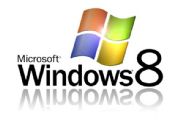Lewis
Member
Five Reasons Microsoft Can Still Win the Tablet War
By Tony Bradley, PCWorld
Microsoft has let it be known that the next version of Windows will run on ARM-architecture, and it has demonstrated early builds of Windows 8--or whatever Microsoft ultimately calls the next OS--on a tablet at both CES 2011, and MIX '11. While Microsoft did a quick 180 on comments from Steve Ballmer confirming a 2012 launch of Windows 8, we know it's coming sometime, and when it does it may quickly dominate the tablet market.
Similar Articles:
Why? Well, here are five reasons that MIcrosoft could come from behind and ultimately win the tablet war.
 If Microsoft plays its cards right, it could still come out on top in the tablet market.1. Uniform Experience. Microsoft Windows enjoys a dominant market share of nearly 90 percent for desktop operating systems. While the tablet is a different environment than the desktop, users will appreciate having a tablet that has a look and feel consistent with what they're already familiar with.
If Microsoft plays its cards right, it could still come out on top in the tablet market.1. Uniform Experience. Microsoft Windows enjoys a dominant market share of nearly 90 percent for desktop operating systems. While the tablet is a different environment than the desktop, users will appreciate having a tablet that has a look and feel consistent with what they're already familiar with.
2. Software Library. Intel informed investors that the ARM version(s) of Windows will not be able to run legacy software, so that could significantly reduce the available software for a Windows tablet. But, Microsoft declared that Intel was out of line in speculating, and it has already demonstrated both Microsoft Office and Internet Explorer 10 on ARM-based tablets.
Even if Intel is correct--and it seems quite possible it could be--Microsoft could still provide developers with the tools necessary to make porting from x86 to ARM as simple as possible. The more users can use the exact same software they are already comfortable with from their desktop, the more successful the tablet will be.
3. Diverse Hardware. Apple dominates the tablet market right now, but with Apple you just have the iPad 2. Granted, it has a variety of models, but overall an iPad 2 is an iPad 2. A Microsoft Windows tablet will most likely follow in the footsteps of the current array of Android tablets with a variety of shapes and sizes to choose from. That diversity gives users more options to choose the tablet form factor and hardware specs that work best for them rather than using the one-size-fits-all approach.
4. Price? You might notice the question mark. On the one hand, different vendors creating rival tablets will drive some price competition--both in the tablet industry overall, and among other Windows tablets. The freedom to use different hardware specs will also enable some cost cutting. But, as it stands now, Apple seems to have cornered the market on many of the key components of tablets, making it difficult for other vendors to purchase the hardware necessary to make tablets in sufficient volume to bring the price down. So, price is a gray area that may be hard to deliver.
5. No Rush. Yes, I understand that Microsoft is not new to tablets. Microsoft has been pushing slate or tablet style PCs for a decade with little success. But, as far as the 'iPad generation' of tablets goes, Microsoft is sitting on the sidelines so far. Microsoft strategy seems to be focused on getting it right, rather than racing to market.
If you look at current iPad rivals, it seems that rushing incomplete, or unfinished tablets to market can have dubious results. The Motorola Xoom and BlackBerry PlayBook were both hailed as potential competitors for the iPad, but both hit the street missing key elements, and leaving users wanting more--resulting in disappointing sales and a first impression for users that may haunt future tablet efforts.
If Microsoft can get it right, and deliver a familiar Windows experience--but in a way that is uniquely suited for a mobile tablet, and deliver it at a price that can compete head to head with the iPad, it could still come out of nowhere and eventually dominate tablets as it dominates desktops.
Of course, I still think that a tablet is not a PC, and that it is a mistake to try and put the Windows desktop in a mobile tablet. In my opinion, Microsoft should be developing a tablet version of the Windows Phone 7 platform because Windows Phone 7 has been designed from the ground up to be a mobile OS.
Five Reasons Microsoft Can Still Win the Tablet War | PCWorld Business Center
By Tony Bradley, PCWorld
Microsoft has let it be known that the next version of Windows will run on ARM-architecture, and it has demonstrated early builds of Windows 8--or whatever Microsoft ultimately calls the next OS--on a tablet at both CES 2011, and MIX '11. While Microsoft did a quick 180 on comments from Steve Ballmer confirming a 2012 launch of Windows 8, we know it's coming sometime, and when it does it may quickly dominate the tablet market.
Similar Articles:
-

Windows 8 on ARM Expands Microsoft's Mobile Horizons -

Microsoft's Windows Phone 7: No Tablets For You -

Why a Windows Tablet Is Still a Bad Idea -

Microsoft Needs a Tablet Strategy, Not a Tablet -

Windows 8 Tablet Reveal? 4 Things We Want to See -

Tablet Wars of 2011: The Battle Looms
Why? Well, here are five reasons that MIcrosoft could come from behind and ultimately win the tablet war.

2. Software Library. Intel informed investors that the ARM version(s) of Windows will not be able to run legacy software, so that could significantly reduce the available software for a Windows tablet. But, Microsoft declared that Intel was out of line in speculating, and it has already demonstrated both Microsoft Office and Internet Explorer 10 on ARM-based tablets.
Even if Intel is correct--and it seems quite possible it could be--Microsoft could still provide developers with the tools necessary to make porting from x86 to ARM as simple as possible. The more users can use the exact same software they are already comfortable with from their desktop, the more successful the tablet will be.
3. Diverse Hardware. Apple dominates the tablet market right now, but with Apple you just have the iPad 2. Granted, it has a variety of models, but overall an iPad 2 is an iPad 2. A Microsoft Windows tablet will most likely follow in the footsteps of the current array of Android tablets with a variety of shapes and sizes to choose from. That diversity gives users more options to choose the tablet form factor and hardware specs that work best for them rather than using the one-size-fits-all approach.
4. Price? You might notice the question mark. On the one hand, different vendors creating rival tablets will drive some price competition--both in the tablet industry overall, and among other Windows tablets. The freedom to use different hardware specs will also enable some cost cutting. But, as it stands now, Apple seems to have cornered the market on many of the key components of tablets, making it difficult for other vendors to purchase the hardware necessary to make tablets in sufficient volume to bring the price down. So, price is a gray area that may be hard to deliver.
5. No Rush. Yes, I understand that Microsoft is not new to tablets. Microsoft has been pushing slate or tablet style PCs for a decade with little success. But, as far as the 'iPad generation' of tablets goes, Microsoft is sitting on the sidelines so far. Microsoft strategy seems to be focused on getting it right, rather than racing to market.
If you look at current iPad rivals, it seems that rushing incomplete, or unfinished tablets to market can have dubious results. The Motorola Xoom and BlackBerry PlayBook were both hailed as potential competitors for the iPad, but both hit the street missing key elements, and leaving users wanting more--resulting in disappointing sales and a first impression for users that may haunt future tablet efforts.
If Microsoft can get it right, and deliver a familiar Windows experience--but in a way that is uniquely suited for a mobile tablet, and deliver it at a price that can compete head to head with the iPad, it could still come out of nowhere and eventually dominate tablets as it dominates desktops.
Of course, I still think that a tablet is not a PC, and that it is a mistake to try and put the Windows desktop in a mobile tablet. In my opinion, Microsoft should be developing a tablet version of the Windows Phone 7 platform because Windows Phone 7 has been designed from the ground up to be a mobile OS.
Five Reasons Microsoft Can Still Win the Tablet War | PCWorld Business Center






